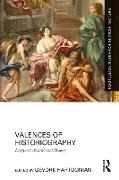Read more
The compiled essays offer various themes and ways of approaching historiography. Each chapter probes the state of contemporary theorization of architecture histories, working toward the theme of critical re-writing of history.
List of contents
1. No (More) History: Reassessing Priorities in Today's Architectural Historiography 2. Architectural History Today. Where Do We Stand? Where Do We Go? 3. Comparative and Critical Histories in Professional Education: A Problem of Disciplinary Methods 4. History Curated: Architecture Museums - Custodians of the Past, Critics of the Present? 5. Inscribing the Past, Looking at the Future: The Temporalities of Townscape 6. Challenging the Methods of Writing Architectural and Urban History: City as History and History as a Living Matter 7. Latin American Architecture and the Iberian Temperament 8. On the Use and Abuse of Global History of Architecture
About the author
Gevork Hartoonian is Emeritus Professor of Architectural History at the University of Canberra, Australia, and holds a PhD from the University of Pennsylvania, USA. He has taught in American universities, including the Pratt Institute and Columbia University, NYC. Hartoonian is, most recently, the author
Mies Contra Le Corbusier: The Frame Inevitable (Routledge 2024),
Towards a Critique of Architecture's Contemporaneity: 4 Essays (Routledge 2023),
Reading Kenneth Frampton: A Commentary on Modern Architecture 1980 (2022) and
Time, History and Architecture: Essays on Critical Historiography (Routledge 2020/2018). He is, most recently, the editor of
The Visibility of Modernization in Architecture: A Debate (Routledge 2023). Hartoonian's previous publications include, among others,
Architecture and Spectacle: A Critique (Routledge 2016/2012) and
The Mental Life of the Architectural Historian (2013). The Korean and Thai editions of
Ontology of Construction (1994) were published in 2010 and 2017.
Summary
The compiled essays offer various themes and ways of approaching historiography. Each chapter probes the state of contemporary theorization of architecture histories, working toward the theme of critical re-writing of history.

